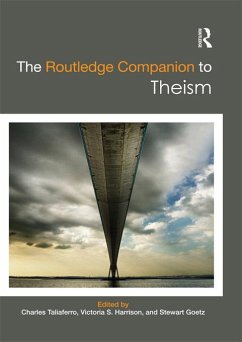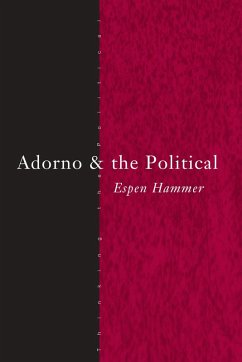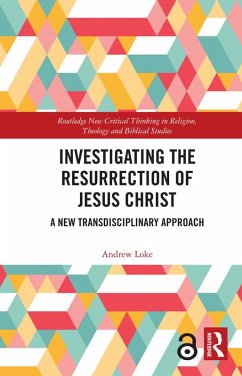
Philosemitism, Antisemitism and 'the Jews' (eBook, PDF)
Perspectives from the Middle Ages to the Twentieth Century
Redaktion: Valman, Nadia
Versandkostenfrei!
Sofort per Download lieferbar
51,95 €
inkl. MwSt.
Weitere Ausgaben:

PAYBACK Punkte
26 °P sammeln!
Philosemitism, Antisemitism and 'the Jews' both honours and carries on the work of The Rev. Dr. James Parkes (1896-1981), a pioneer in the many different fields involving the study of Jewish/non-Jewish relations. The collection is designed to examine both the specific and broader themes of Parkes' life work in relation to tolerance and intolerance. From antiquity to today, Jews have often been defined as 'aliens'; these essays consider the effects of such legislative and socio-cultural exclusion on the self-definition of the dominant society. Philosemitism, Antisemitism and 'the Jews' employs ...
Philosemitism, Antisemitism and 'the Jews' both honours and carries on the work of The Rev. Dr. James Parkes (1896-1981), a pioneer in the many different fields involving the study of Jewish/non-Jewish relations. The collection is designed to examine both the specific and broader themes of Parkes' life work in relation to tolerance and intolerance. From antiquity to today, Jews have often been defined as 'aliens'; these essays consider the effects of such legislative and socio-cultural exclusion on the self-definition of the dominant society. Philosemitism, Antisemitism and 'the Jews' employs an interdisciplinary framework, bringing together the work of scholars from both sides of the Atlantic and Israel, who work in history, theology, political philosophy, legal theory and literary studies. Eminent historians and theorists of tolerance and intolerance, including Gavin Langmuir, David Theo Goldberg, Norman Solomon and Tony Kushner, are joined by younger scholars researching new developments in the field.
Dieser Download kann aus rechtlichen Gründen nur mit Rechnungsadresse in A, B, BG, CY, CZ, D, DK, EW, E, FIN, F, GR, HR, H, IRL, I, LT, L, LR, M, NL, PL, P, R, S, SLO, SK ausgeliefert werden.













